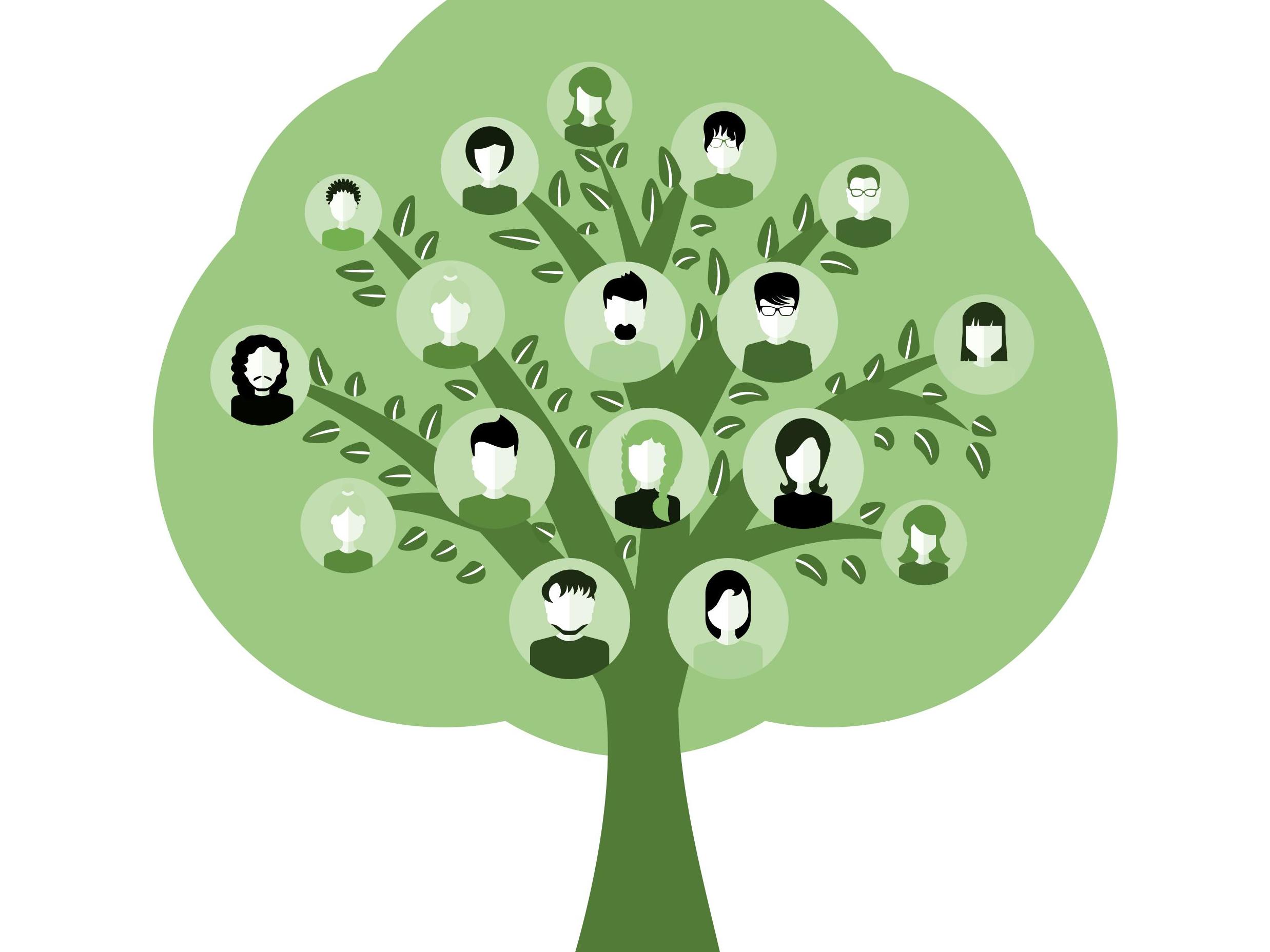From Who Do You Think You Are to 23andMe: Why are we so intrigued by our ancestry?
As someone who has always been fascinated by her past, Sabrina Barr was keen to explore how her family tree could be connected to her sense of self-identity


When Danny Dyer discovered he was related to Thomas Cromwell, King Edward III and William the Conqueror on Who Do You Think You Are?, viewers were (understandably) a little surprised at the Eastenders actor’s links to royalty. The 2016 episode has since been described as one of the most entertaining for the genealogy programme (thanks in part to Dyer saying things like “I’m going to treat myself to a massive ruff”) but for a show that regularly attracts audiences of 6m viewers and won a Bafta in 2017, there must be a reason for its success beyond a single comedic cameo.
Earlier this year I was offered a chance to discover what that magic ingredient is when probate genealogy firm Anglia Research signed me up to my very own Who Do You Think You Are? experience. I jumped at the chance to follow in the footsteps of stars such as Naomie Harris, Ainsley Harriott and Sharon Osbourne. Was I also going to discover unexpected links to nobility and have to ask colleagues to start addressing me as HRH? Or, more likely, learn how family members I never even knew existed had actually played a role in shaping my life.
Admittedly it was wishful thinking to imagine a future full of crowns and spending weekends with the Sussexes in Los Angeles. Nonetheless, being presented with a folder containing archives dating back more than a century was totally exhilarating.
Using online databases, the company uncovered documents including the 1911 census of England and Wales, a military enlistment form, a school register and even the medical history of one of my great great uncles. Their research painted a picture of my ancestors as living and breathing human beings, rather than just as forgotten names at the top of a family tree.
Interest in ancestry is far from a new phenomenon. However, an increased degree of focus has been placed on genealogy in recent years, thanks in part to programmes such as the BBC’s Who Do You Think You Are? and digital services such as those provided by DNA testing firm 23andMe. A spokesperson for the company told The Independent that the firm has sold 12 million kits for its ‘health and ancestry’ and ‘ancestry and traits’ services, while Ancestry.com claims that it has garnered DNA samples from more than 16 million people across the globe.
So what is it about our heritage that many of us find so intriguing? According to Clay Routledge, professor of psychology at North Dakota State University, it is an inherent aspect of our human character. “I believe it is part of our existential nature,” he tells The Independent. “As cognitively sophisticated animals, we view the self in symbolic terms that extend beyond the material body. We want to be part of something larger than ourselves. We seek enduring meaning. Connecting to the past (and future generations) helps weave us into a broader and more meaningful cultural narrative.”
We may construct our family histories to make sense of our identities
In today’s digital age we see many people attempt to forge a sense of self-identity through the filtered lens of social media, sharing snippets of their lives with friends and strangers, building a digital personal brand. This insatiable desire to carve out a persona online may bear strong links with interest in lineage, says Paula Nicolson, Emeritus Professor at Royal Holloway University of London and author of Genealogy, Psychology and Identity, as people look to their present, past and future when figuring out what self-identity means to them.
“I do consider that there is a link between online identity and seeking family history,” Professor Nicolson tells The Independent. In her book, Professor Nicolson explains how a “strong motive for our apparent absorption in genealogy is that discoveries are part of the ongoing project of the ‘self’ — gaining, developing and understanding a sense of who we are”.
The academic details how the focus we place on how people respond to us on social media — from the number of likes you receive to how you look, who you are with and where you are — is seemingly “integral to personal satisfaction as well as the ongoing story or narrative we construct about who we really are”. “And in this way our ancestors are similarly integral — whoever they turn out to be,” she continues. “As we construct ourselves in order to make sense of our lives, we may also construct our family histories to make sense of our identities.”
Finding out more about your genetic past may also be a more obvious course of action for those who come from less conventional nuclear families – through adoption or surrogacy – or who perhaps feel geographically disconnected from their ancestors due to emigration.
You don’t get what you see in the TV advertisements
This was the case for Anglia Research founder Peter Turvey, who was adopted as a young child and later became a genealogist after conducting research into his family. “Our studies show that when people experience uncertainty or disconnection, they become more nostalgically oriented in the service of restoring connection and a sense of identity,” Professor Routledge says.
However, if you choose to go down the DNA tracing root, you may find your research yields unsatisfactory results. Mr Turvey states that while the DNA ancestry industry “has its place”, it is still “in its infancy” as many of the connections found through it are still fairly “distant”.
Mr Turvey explained that while people may visualise an experience similar to that of the stars who appear on Who Do You Think You Are?, exploring your family tree is unlikely to come with the same bells and whistles. “Unfortunately you don’t get what you see in the TV advertisements — that you can put a name in and you get presented with your entire family tree and photographs and it all unfurls like a leaf,” he stated.
Nevertheless, with the power of the internet and a growing commercialisation of ancestry, there is a wealth of knowledge out there at your fingertips, he explained. You can conduct research into your own family using birth, marriage and death indexes.
For me learning about my ancestry certainly did reinforce, if not entirely change, my perception of self. I learnt that my great great aunt attended school in the early 20th century at a time when it would have been regarded as unusual for girls to do so. My great great uncle enlisted to serve in the First World War at 19 years old, standing tall at 5’ 3” as he took up arms for his country.
My great grandfather arrived in England from eastern Europe alongside his brother, adopting a new name as he prepared to lead an unpredictable life in a foreign country. My ancestors were resilient, determined and spirited, attributes I continually strive to carry across to my own life in the 21st century.
It also — in more practical terms — allowed me to clear up details about my ancestors that had been foggy and share them with my parents and grandparents. This knowledge had been lost over time and may have remained so if it were not for this exercise. While nothing in our everyday lives has changed as a result, I found looking to the past to be therapeutic.
If you’re considering doing your own research Mr Turvey says the best place to start is simple: “Find the oldest person within your family, take a notepad and a piece of paper and ask them about it.”
Join our commenting forum
Join thought-provoking conversations, follow other Independent readers and see their replies
Comments